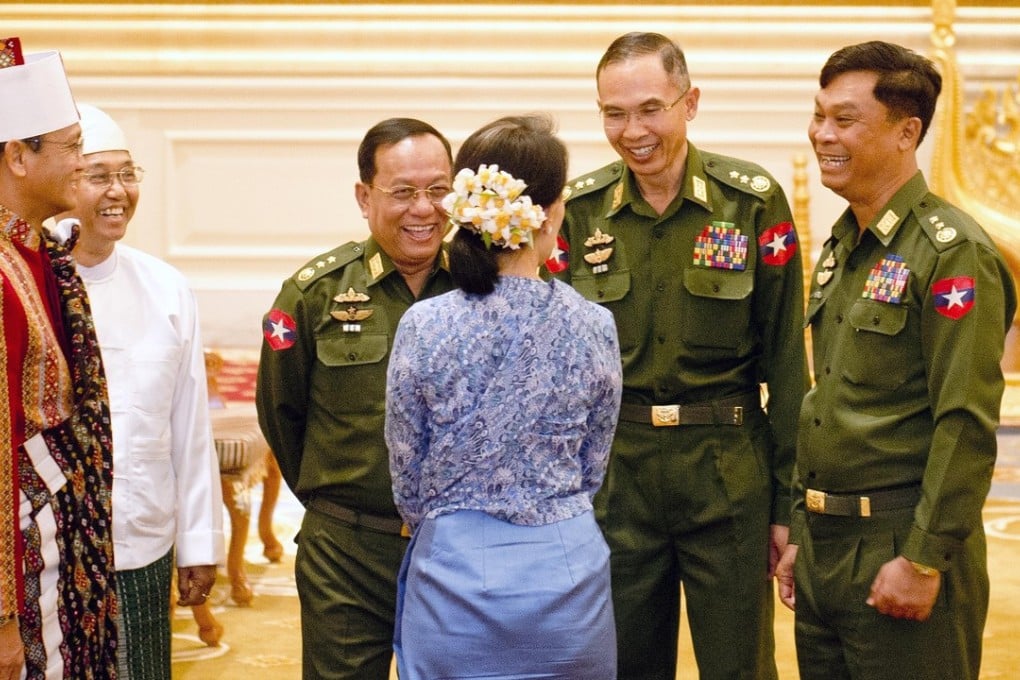Will Myanmar’s new president Win Myint tip the scales in Aung San Suu Kyi’s favour?
Win Myint is known to be assertive and ambitious, but to rule with authority he will have to work against both Suu Kyi’s well-known micromanagement of her party members as well as the powerful military

Nearly 30 years ago when Win Myint sat in a jail cell after he was elected in Myanmar’s 1990 election, which was nullified by the junta, the military offered him the chance to be free to see his critically ill son. All he had to do, the regime said, was sign a declaration promising to renounce politics.
Win Myint refused, missing his son’s funeral as well.
“I couldn’t accept it as my constituents believed in me and voted for me,” he said in 2016 after being elected speaker of the lower house of parliament. “I do not bear a grudge [against the military], but I want my son with me on a day like this.”
In India’s Assam, a Rohingya-like refugee crisis in the making
Now, the former lawyer and pro-democracy activist stands in position to challenge the military head on as the country’s new president, part of an unsuspected reshuffle that could upset the delicate balance of power between the nation’s mighty generals and the country’s de facto leader, State Counsellor Aung San Suu Kyi.

A stalwart of the ruling National League for Democracy (NLD) party, Win Myint, 66, is considered a close confidant to Suu Kyi. Legislators described him as being strict yet calm when overseeing debates as speaker and is believed to be a more ambitious and assertive politician compared with his predecessor, Htin Kyaw.
Win Myint’s recent pledge to amend the constitution, which bars Suu Kyi from the presidency and gives wide-ranging power to the military, could destabilise Myanmar’s fragile transition from military to civilian rule, which began in 2011 when the military was replaced with a semi-civilian government after ruling in various forms since 1962.